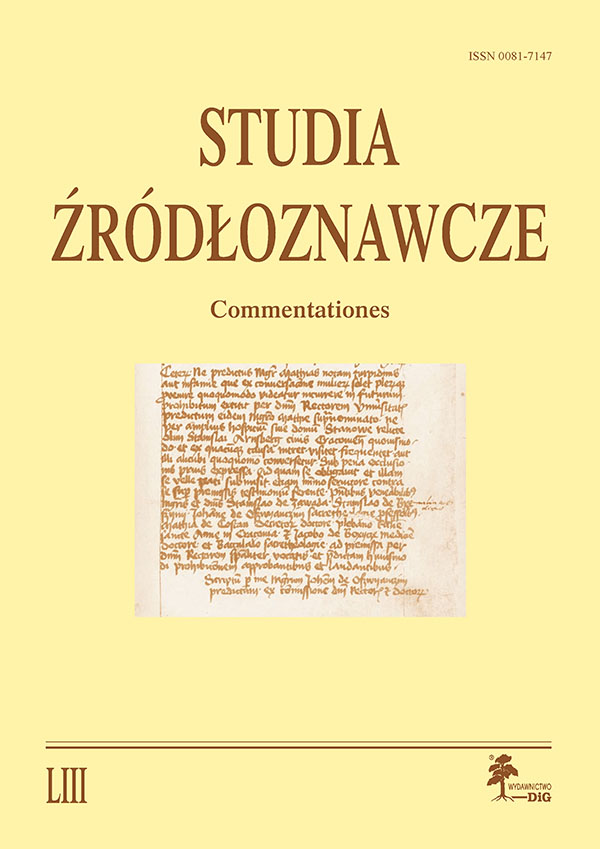In illa terra, ubi nullus antiquitatum unquam scriptor fuerit. Historia jako składnik tożsamości ludu cywilizowanego (na przykładzie opowieści Mnicha Teodoryka o okolicznościach chrztu Olafa Świętego)
DOI :
https://doi.org/10.12775/SZ.2015.01Résumé
In illa terra, ubi nullus antiquitatum unquam scriptor fuerit. History as a Component of the Identity of a Civilised People (Upon the Example of an Account by Theodoricus Monachus of the Circumstances of the Baptism of St. Olaf)
The article presents the circumstances of the baptism of St. Olaf recounted by Theodoricus Monachus, a Norwegian chronicler from the end of the twelfth century. Theodoricus noted that the time and place of the ruler’s christening remained unknown. This is not surprising since, he added, up to then Norway did not have a chronicle of ancient times, and even St. Jerome was uninformed about data concerning the christening of Constantine the Great. The presented analysis pertains to sources used by Theodoricus to learn about the emperor’s baptism and traces of a twelfth–century discussion about the donation made by him and Constantinian ideology. Finally, the author inquired into the meaning of a comparison of the two rulers in view of the fact that the chronicler did not envisage the Norwegian king as a „New Constantine” but was concerned with demonstrating that the until recently barbarian Norwegians, who did not have at their disposal a historiographic tradition of their own, did not differ much from the level delineated by ancient civilisation. After all, even the Romans were uncertain where the first Christian emperor had been baptised.
Téléchargements
Publié-e
Comment citer
Numéro
Rubrique
Stats
Number of views and downloads: 409
Number of citations: 0



